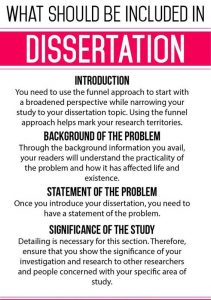The dissertation defense. Two words that strike fear into the hearts of countless graduate students. This seemingly insurmountable hurdle marks the culmination of years of research, writing, and sleepless nights. But it doesn't have to be a dreaded ordeal. With the right preparation and strategy, the dissertation defense can be a triumphant moment, a celebration of your academic journey and a springboard for future success.
This article explores proven tricks to navigate this pivotal stage of your academic career, transforming the dissertation defense from a source of anxiety into an opportunity for showcasing your expertise and intellectual prowess.
What is a Dissertation Defense?
A dissertation defense is the final stage of a doctoral degree program, where the candidate formally presents their dissertation research to a panel of experts and defends its validity and significance. Here's a breakdown of what it entails.
What it is:
- A formal presentation: The candidate delivers a structured presentation of their dissertation, covering the research question, methodology, findings, and conclusions.
- A Q&A session: The panel of experts (usually professors in the candidate's field) ask questions about the dissertation, challenging the candidate's research and conclusions.
- A public event: In most cases, the defense is open to the public and fellow students.
- A culmination of years of work: It represents the culmination of years of research, writing, and scholarly work.
What it aims to achieve:
- Demonstrate mastery of the subject: The candidate proves their deep understanding of the research area and their ability to conduct rigorous academic research.
- Defend the research's validity: The candidate must be able to justify their methodology, analyze their findings, and defend their conclusions against the panel's scrutiny.
- Contribute to the field of study: The dissertation should present original research that contributes to the existing body of knowledge.
- Gain approval for the degree: A successful defense is necessary for the candidate to receive their doctoral degree.
Key elements of a defense:
- The presentation: This is typically around 30-60 minutes long and focuses on the dissertation's main points.
- The Q&A session: This can last for 30 minutes to an hour or more, and it allows the panel to probe the candidate's research in detail.
- The defense committee: This is usually made up of three to five experts in the field, including the candidate's advisor.
- The outcome: The committee will evaluate the presentation and the Q&A session to determine whether the candidate has successfully defended their dissertation.

The dissertation defense is a demanding but rewarding experience. It marks a significant achievement in a candidate's academic journey and sets the stage for a future career in research, teaching, or other scholarly pursuits.
How to Present a Compelling Dissertation Defense
- Know Your Dissertation Inside Out:
The most fundamental trick is to know your
dissertation better than you know your own name. This goes beyond simply memorizing the content. True mastery means understanding the intricacies of your research, the logic behind your arguments, and the implications of your findings. Be prepared to answer questions not only about the central theme but also about the specific methodologies, theoretical frameworks, and limitations of your study.
This level of comprehension is achieved through diligent practice. Rehearse your defense multiple times, both solo and with a mock audience. Engage in open discussions with your advisor and peers, simulating the dynamic of the actual dissertation defense. This rigorous self-examination will not only solidify your knowledge but also reveal any potential gaps or inconsistencies in your arguments.
- Anticipate the Committee's Questions:
Your committee members are experts in their field, and they will be eager to engage with your research. Anticipating their questions is a crucial element of successful dissertation defense preparation.
Begin by analyzing your dissertation from their perspective. What are the key points they might question? What are the potential critiques or alternative interpretations of your findings?
Engage in brainstorming sessions with your advisor, discussing possible lines of inquiry and potential challenges. Consider attending other dissertation defenses to observe the types of questions asked and the dynamics of the exchange. This proactive approach will equip you with the knowledge to address potential concerns head-on and to confidently defend your arguments.
- Master the Art of Communication:
A dissertation defense is not just about presenting your research; it's about effectively communicating your ideas to a diverse audience. This requires clarity, conciseness, and a compelling narrative.
Practice your presentation until you can deliver it flawlessly, emphasizing key findings and summarizing complex concepts in a digestible manner. Employ visual aids strategically to enhance comprehension and engagement. Remember, you're not simply reciting facts; you're weaving a compelling story that showcases the originality and significance of your research.
Be mindful of your body language and voice modulation. Project confidence and enthusiasm, making eye contact with your audience and using gestures to emphasize key points.
- Prepare for the Unexpected:
While meticulous preparation can help you anticipate most questions, the dissertation defense is not a predictable event. Be prepared for curveballs, challenging inquiries that push you beyond your comfort zone.
Maintain a calm demeanor and acknowledge the validity of the question, even if it challenges your assumptions. Take a moment to gather your thoughts before responding, and if necessary, request clarification.
This approach demonstrates your composure and willingness to engage with differing perspectives, further solidifying your image as a thoughtful and capable scholar.
- Cultivate a Supportive Network:
The dissertation defense is a challenging milestone, and navigating it effectively requires a strong support network. Your advisor is your primary ally in this process, offering guidance, feedback, and unwavering encouragement.
However, don't underestimate the value of peer support. Engage in discussions with fellow students, sharing anxieties, strategies, and insights. This collective experience can provide valuable perspectives and bolster your confidence.
Remember, you are not alone in this journey. The camaraderie of your peers can create a supportive environment that helps you navigate the inevitable anxieties and challenges of the dissertation defense.
- Embrace the Feedback:
The dissertation defense is not solely an opportunity to present your research; it's also a chance to receive valuable feedback from experts in your field.

Embrace this opportunity for constructive criticism as a chance to grow and refine your work. Listen attentively to the feedback provided by your committee, taking notes and asking clarifying questions.
Even if the feedback is challenging, view it as a valuable opportunity for improvement. Demonstrate your willingness to learn and engage with the critiques, showcasing your maturity and dedication to academic excellence.
- Focus on the Big Picture:
While the dissertation defense is a significant event, it's essential to keep it in perspective. It's a crucial step towards a larger goal – achieving your doctorate and embarking on your academic career.
Maintain a focus on the broader picture, remembering the significance of your research and the potential impact it could have on your field. This perspective can help you manage stress and maintain a positive outlook, even when faced with challenging questions or critiques.
- Celebrate Your Accomplishment:
Regardless of the outcome, the dissertation defense is a significant milestone. You have dedicated years of your life to this research, pushing your intellectual boundaries and making a tangible contribution to your field.
Therefore, celebrate your achievement! Take time to recognize your hard work, resilience, and the knowledge you've acquired. This milestone is a testament to your commitment to academic excellence, and it sets the stage for a fulfilling and impactful career.
Embrace the Feedback and Refine Your Work:

The dissertation defense is not the end of your academic journey, but rather a new beginning. It's the culmination of your graduate studies, but it's also a stepping stone towards future research, teaching, and engagement with your field.
The feedback you receive during the dissertation defense can serve as a valuable roadmap for refining your research. Carefully consider the committee's suggestions, incorporating them into your dissertation manuscript. This process of revision and refinement will further enhance the quality and impact of your work.
Prepare for the Next Chapter:
As you transition from student to scholar, embrace the opportunities that lie ahead. Your dissertation provides a strong foundation for future research endeavors. Use your newfound knowledge and expertise to explore new avenues of inquiry, contribute to scholarly discussions, and become a thought leader in your field.
Engage with the Academic Community:
The academic world is a vibrant and collaborative community. Engage in conferences, workshops, and other professional events to connect with fellow scholars, share your research, and contribute to ongoing discussions.
Stay Curious and Driven:
The dissertation defense is not a finish line, but a launching pad. Remain curious, stay driven, and continue to seek knowledge and understanding. Embrace the challenges and rewards of a life devoted to academic exploration and discovery.
Although the dissertation defense is a significant moment in a scholar's journey, it is just one piece of a larger academic narrative. By approaching it with meticulous preparation, effective communication, and a positive mindset, you can transform this challenging experience into a celebration of your academic achievements. Remember, the dissertation defense is not just about defending your work, but about showcasing your intellectual growth, passion, and commitment to your field. Embrace the journey, and let your research inspire the next chapter of your academic career.
Get Professional Dissertation Help
At
Academia Scholars, we provide professional dissertation help to enable you get through this critical stage in your academic journey. Our services cover multiple academic disciplines including nursing, engineering, hospitality, business management, marketing and law.
 The dissertation defense is a demanding but rewarding experience. It marks a significant achievement in a candidate's academic journey and sets the stage for a future career in research, teaching, or other scholarly pursuits.
The dissertation defense is a demanding but rewarding experience. It marks a significant achievement in a candidate's academic journey and sets the stage for a future career in research, teaching, or other scholarly pursuits.
 Embrace this opportunity for constructive criticism as a chance to grow and refine your work. Listen attentively to the feedback provided by your committee, taking notes and asking clarifying questions.
Even if the feedback is challenging, view it as a valuable opportunity for improvement. Demonstrate your willingness to learn and engage with the critiques, showcasing your maturity and dedication to academic excellence.
Embrace this opportunity for constructive criticism as a chance to grow and refine your work. Listen attentively to the feedback provided by your committee, taking notes and asking clarifying questions.
Even if the feedback is challenging, view it as a valuable opportunity for improvement. Demonstrate your willingness to learn and engage with the critiques, showcasing your maturity and dedication to academic excellence.
 The dissertation defense is not the end of your academic journey, but rather a new beginning. It's the culmination of your graduate studies, but it's also a stepping stone towards future research, teaching, and engagement with your field.
The feedback you receive during the dissertation defense can serve as a valuable roadmap for refining your research. Carefully consider the committee's suggestions, incorporating them into your dissertation manuscript. This process of revision and refinement will further enhance the quality and impact of your work.
Prepare for the Next Chapter:
As you transition from student to scholar, embrace the opportunities that lie ahead. Your dissertation provides a strong foundation for future research endeavors. Use your newfound knowledge and expertise to explore new avenues of inquiry, contribute to scholarly discussions, and become a thought leader in your field.
Engage with the Academic Community:
The academic world is a vibrant and collaborative community. Engage in conferences, workshops, and other professional events to connect with fellow scholars, share your research, and contribute to ongoing discussions.
Stay Curious and Driven:
The dissertation defense is not a finish line, but a launching pad. Remain curious, stay driven, and continue to seek knowledge and understanding. Embrace the challenges and rewards of a life devoted to academic exploration and discovery.
Although the dissertation defense is a significant moment in a scholar's journey, it is just one piece of a larger academic narrative. By approaching it with meticulous preparation, effective communication, and a positive mindset, you can transform this challenging experience into a celebration of your academic achievements. Remember, the dissertation defense is not just about defending your work, but about showcasing your intellectual growth, passion, and commitment to your field. Embrace the journey, and let your research inspire the next chapter of your academic career.
The dissertation defense is not the end of your academic journey, but rather a new beginning. It's the culmination of your graduate studies, but it's also a stepping stone towards future research, teaching, and engagement with your field.
The feedback you receive during the dissertation defense can serve as a valuable roadmap for refining your research. Carefully consider the committee's suggestions, incorporating them into your dissertation manuscript. This process of revision and refinement will further enhance the quality and impact of your work.
Prepare for the Next Chapter:
As you transition from student to scholar, embrace the opportunities that lie ahead. Your dissertation provides a strong foundation for future research endeavors. Use your newfound knowledge and expertise to explore new avenues of inquiry, contribute to scholarly discussions, and become a thought leader in your field.
Engage with the Academic Community:
The academic world is a vibrant and collaborative community. Engage in conferences, workshops, and other professional events to connect with fellow scholars, share your research, and contribute to ongoing discussions.
Stay Curious and Driven:
The dissertation defense is not a finish line, but a launching pad. Remain curious, stay driven, and continue to seek knowledge and understanding. Embrace the challenges and rewards of a life devoted to academic exploration and discovery.
Although the dissertation defense is a significant moment in a scholar's journey, it is just one piece of a larger academic narrative. By approaching it with meticulous preparation, effective communication, and a positive mindset, you can transform this challenging experience into a celebration of your academic achievements. Remember, the dissertation defense is not just about defending your work, but about showcasing your intellectual growth, passion, and commitment to your field. Embrace the journey, and let your research inspire the next chapter of your academic career.